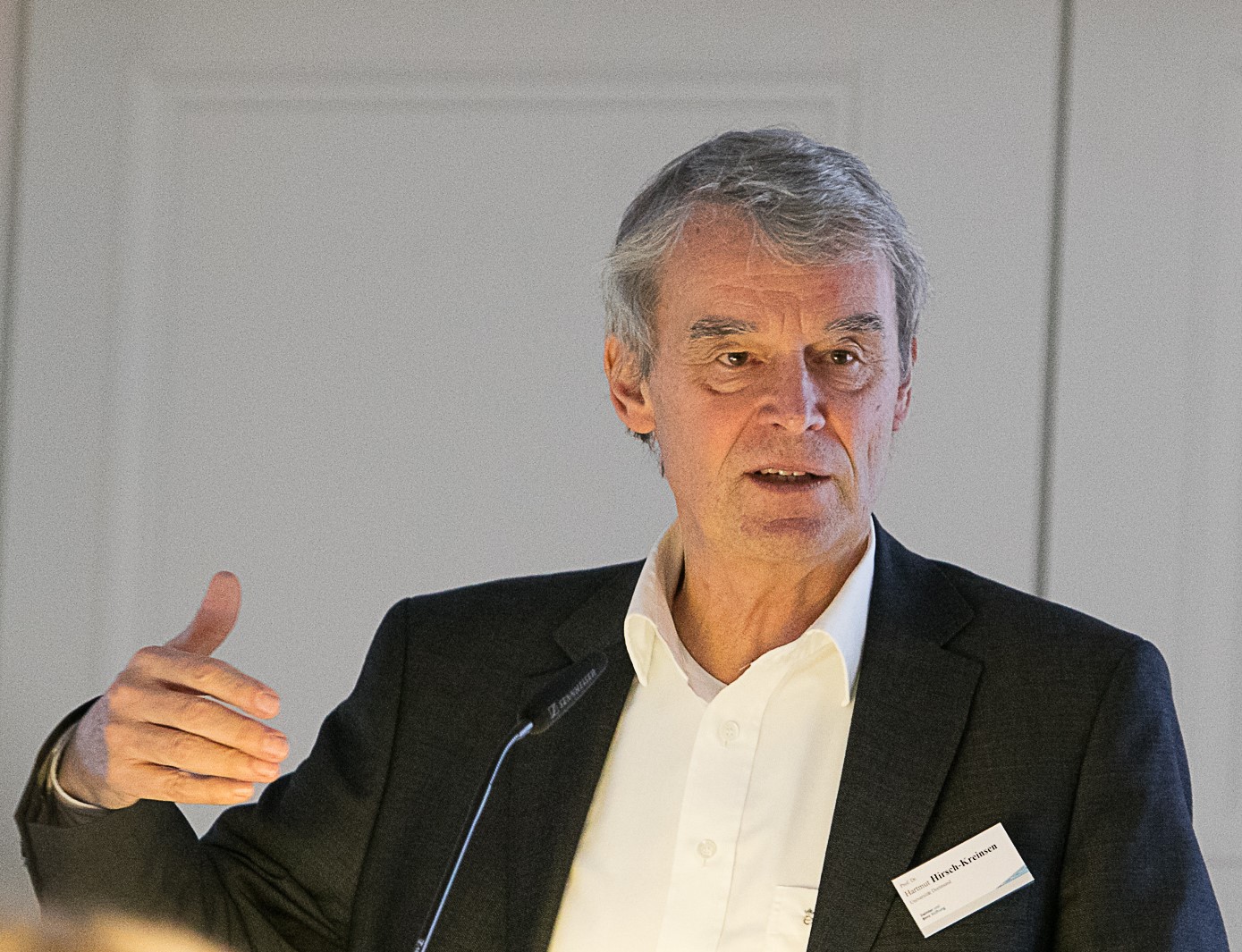The key topic Industry 4.0 and its effects will be examined from now on in the new Innovationlab Hybrid Services in Logistics. A central scientific question is how to design and organise responsible and target-oriented performance in the interaction of men and machines in joint networks. Industry 4.0 is thus understood as socio-technical system. What is behind that term, explains Prof. Dr. Hartmut Hirsch-Kreinsen of the Chair of Economic and Industrial Sociology of TU Dortmund University.
In the context of the Innovationlab Hybrid Services in Logistics the planned analysis and the design of the man-machine-interaction is based on a conceptual approach called “Socio-Technical System”. This approach goes back to long tradition of work analysis and it proved its analytical power in many studies of the organizational and personnel consequences of automation. Though in research it is not always uniformly defined, a Socio-Technical System can be understood as a production unit that consists of interdependent technological, organizational and personnel subsystems. In view of Industry 4.0 that is particularly important as man will enter into a dialogue with both robots and cyber-physical systems like intelligent shelves, containers or vehicles. With this approach of the “Socio-Technical System”, asking only about the functioning of individual and separated technical and non-technical elements is avoided. Therefore, the focus is rather on analysis and design process than on the reciprocal effects and the combination of elements, that is, the Socio-Technical Configurations. Connected with this is the fundamental assumption of the concept that the design and performance of new systems can be improved, and indeed can only work satisfactorily, if the ‘social’ and the ‘technical’ are brought together and treated as interdependent aspects of a work system.
As the first basic considerations in the context of the debate over smart production systems also show, this analytical comprehension of the total system sufficiently permits statements about the developmental perspectives and design alternatives for work. For this reason the Socio-Technical System approach is also programmatically included in the current discussion about Industry 4.0 in Germany. Above all in technically dominated discourses, conceptual attention focusses on the circumstance which is often not considered that automation affects not only single jobs, activities and the qualifications of individual persons, but beyond that, has consequences for the entire socio-organizational structure of a production system. For its part, this Socio-Technical System is in turn connected with higher-level strategic targets and is an element in the total process of a value-creation chain. With this approach is also opened a dynamic perspective on the technologically induced transformation of work, since it addresses the reciprocal contexts between the technological and the social subsystems.
All in all, this approach opens a holistic view in the man-machine-interaction in hybrid service systems in order to realize a process of system optimization referring to economic aim and to the aim of improving work conditions and an upgrading of qualifications and skills of the employees involved.
ABOUT THE AUTHOR
Prof. Dr. Hartmut Hirsch-Kreinsen leads the industry and labour research at TU Dortmund University. In a social-scientific way, the research area considers the conditions and consequences of both innovation and rationalisation strategies of companies in their context with structural changes in society. The central focus is on the development tendencies of industrial work in the context of digitalisation and Industry 4.0.
MORE ABOUT THE TOPIC
The Innovationlab Hybrid Services in Logistics is an interdisciplinary research project that develops and implements new technologies for Industry 4.0 focusing on man-machine-interaction. Project partners are Fraunhofer Institute for Material Flow and Logistics IML in Dortmund and TU Dortmund University with the Faculty of Mechanical Engineering and the research area of Industry and Labour Research. The Federal Ministry of Education and Research (BMBF) sponsors the project with a total of 10 million EURO over a period of three years. On the one hand, the innovation lab intends to strengthen the leading position of the location Dortmund with respect to service and logistics, on the other hand, to accelerate acceptance and introduction of new technical solutions focussing on Industry 4.0. Seven academic and industrial partnering networks and seven more social partners and multipliers in the Rhine-Ruhr metropolitan region are already included in the work of the Innovationlab.
More information: www.innovationslabor-logistik.de
 Fraunhofer Institute for Material Flow and Logistics IML
Fraunhofer Institute for Material Flow and Logistics IML